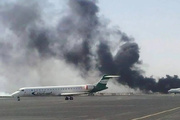The Caspian region reserves are in excess of 200 billion barrels of crude oil, ranking second in the world after Middle East. Exploration of these reserves poses immediate danger to the Caspian ecosystem as each state wants to explore oil and gas in the sea in its own way. Already the sea seems to be seriously polluted as Russia and Turkmenistan work on zinc and copper extractions on the northern seabed. This is the worst case scenario for the Caspian sturgeon.
Besides energy resources, political moves in the region, especially in the Caucasus, puts it very much in the world news. In order to reduce tensions, Iran and Russia concluded two treaties, one in 1921 and the other in 1940, but it did not last long as the former USSR started vast operations on the sea. The soviet collapse in 1991 changed things so that extra-regional powers like the U.S. and China dared to be involved in the territorial affairs. It seems the United States eyes the Caspian Sea in order to extract as much oil and gas resources as it does in the Persian Gulf littoral states.
The superpower plans to add up to its current energy resources so that it would be able to take over the markets once it faces natural disasters like Hurricane Ivan or any time there is political unrests in other oil producing countries. McDermott, Pennzoil, and Exxon are presently working in the region to facilitate this move for the U.S.
Along China, the EU is also marking the Caspian states into sharing their natural resources. Up to now, Statoil, Royal Dutch/Shell, Total, Eni, and Agip have been ordered to collect Europe’s share.
However, former Soviet republics sometimes find no other way of transporting their cargos beyond the Caucasus mountains but to sign contracts with wealthy European companies.
According to the International Energy Agency (IEA) report, the Caspian Sea contains a maximum of 40 billion oil barrels as well as around 6.7-9.3 trillion cubic meters of gas. It is estimated that the Caspian’s daily crude exports would reach two million barrels until 2010.
After long talks over choosing the best route for transferring the oil out of the region, representatives from the United States, Azerbaijan, Turkey, Georgia, and 27 Baku-based international banks and organizations agreed that Baku-Ceyhan road is the most suitable route. This route starts in Baku runs 200 kilometers to Port of Ceyhan in Turkey facing the Mediterranean Sea. The pipeline which will be operational by 2005 will cost $3 billion and will be able to transfer 1.2 million barrels of crude oil. It will be built by British Petroleum (BP) with one billion dollars of financing by America.
Despite matters of security and fears of environmental pollution, the U.S. companies do not seem to have given up the project. That’s perfectly understandable; they do this to prevent Russia, Iran, and China to be involved in the slap-up contract.
All these prove the absolute necessity for a justified legal framework for the intra-territorial relations of the Caspian states. In other words the shares of each state should be determined. The battle will be over when such an arrangement is reached otherwise the littoral states will be locked in bitter dispute.
ER/MA
END
MNA






















Your Comment